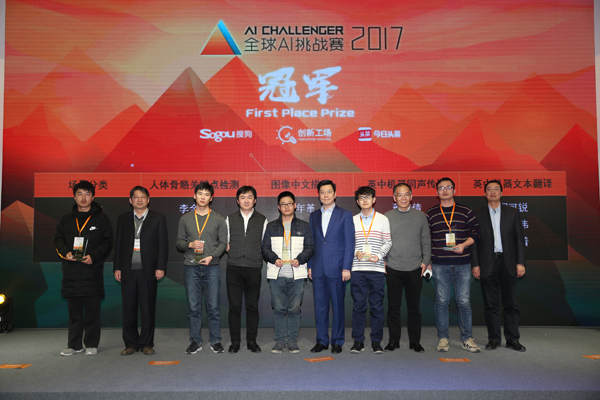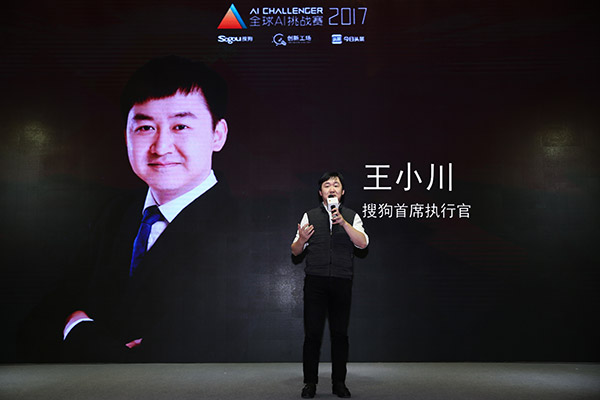Open access to datasets crucial for nurturing AI talents


The importance of datasets, the 'fuel' for artificial intelligence (AI), should be valued by the industry, Kai-Fu Lee, founder and CEO of venture capital firm Sinovation Ventures, said on Thursday.
At the award ceremony of the Global AI Contest 2017 held in Beijing, he said "I hope companies in the industry can contribute their data and resources because only such aggregation can create an AI system that keeps improving."
The Global AI Contest 2017, jointly launched by Sinovation Ventures, search engine company Sogou Inc and news aggregator app Toutiao on August 14, attracted a total of 8,892 teams from 247 Chinese universities, 100 foreign universities and around 273 companies such as bike-sharing company Mobike Technology, smartphone vendor Xiaomi Corp and internet retailer eBay.
It provided 10 million English-Chinese machine translation data, 700,000 human skeletal system key points data, 300,000 photo scene annotation and semantic description data to contestants, making it the largest datasets publicly available in China to date.
"Through the contest, we hope students, researchers and entrepreneurs who do not have access to accurate data of huge amounts can get the same opportunity as those who work for internet giants such as Baidu, Alibaba and Tencent," Lee said.
"Only by dealing with the world-level datasets can they fully understand the role that data can play in AI," Lee added.

Zhang Hongjiang, head of Technical Strategy Research of Toutiao, said in the AI industry, especially in the United States, startups find it hard to compete against internet giants.
"Giants such as Google, Facebook and Microsoft not only have strong financial resources, but more importantly, they have a large number of users who generate a large amount of data," Zhang said. "As the data resources are monopolized by them, it is difficult for today's AI startups to grow into giants as those companies in the eras of personal computer and mobile internet did."
Compared to the US, Lee told China Daily website that China's biggest advantage in developing AI industry is there is a huge amount of data here.
In addition, he said Chinese government's policy support for the industry matters a lot.
"For a government that support the technological development and is willing not to restrict the application of new technology prematurely, it can promote the industry to develop faster," Lee said.
In Lee's opinion, the greatest progress China's AI industry has met this year is the national artificial intelligence development plan issued by the State Council, China's Cabinet, in July.
According to the plan, the overall level of China's AI technology and its use should catch up with the world's leading level by 2020 and AI core industry should grow into 1 trillion yuan ($147.9 billion) by 2030 to stimulate as much as 10 trillion yuan in related business.
Lee said although the US leads China in AI at present, he believes China will be able to catch up with the world's leader faster if AI's industrial application in US is hindered by all kinds of existing policies while China has the national plan to promote it.

Sogou CEO Wang Xiaochuan said he would like to see the contest become a starting point of shifting technological research from the US to China.
China is expected to be among the biggest beneficiaries of AI with the industry projected to contribute a 26 percent boost to its GDP by 2030, according to a report from consultancy firm PricewaterhouseCoopers.




































